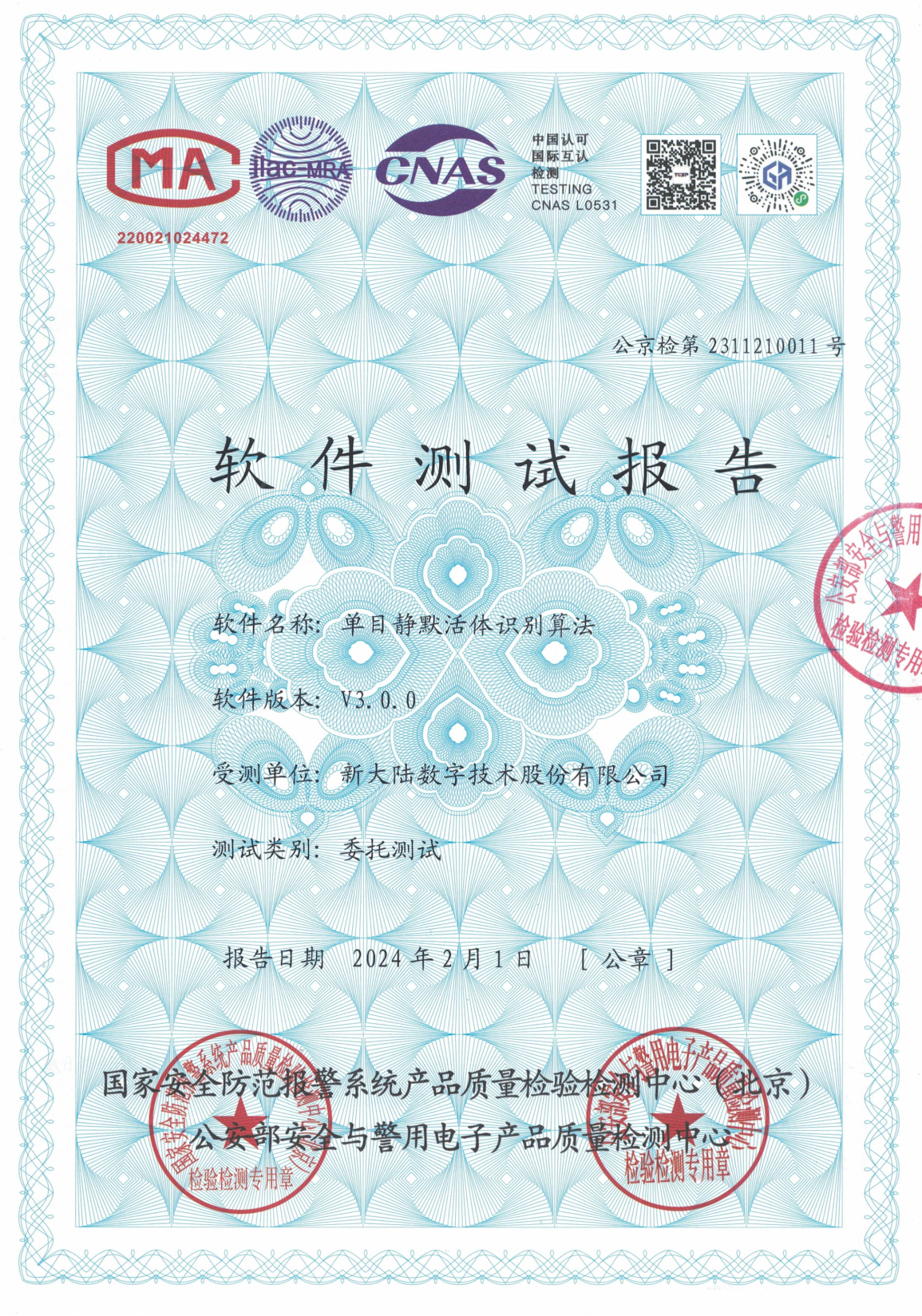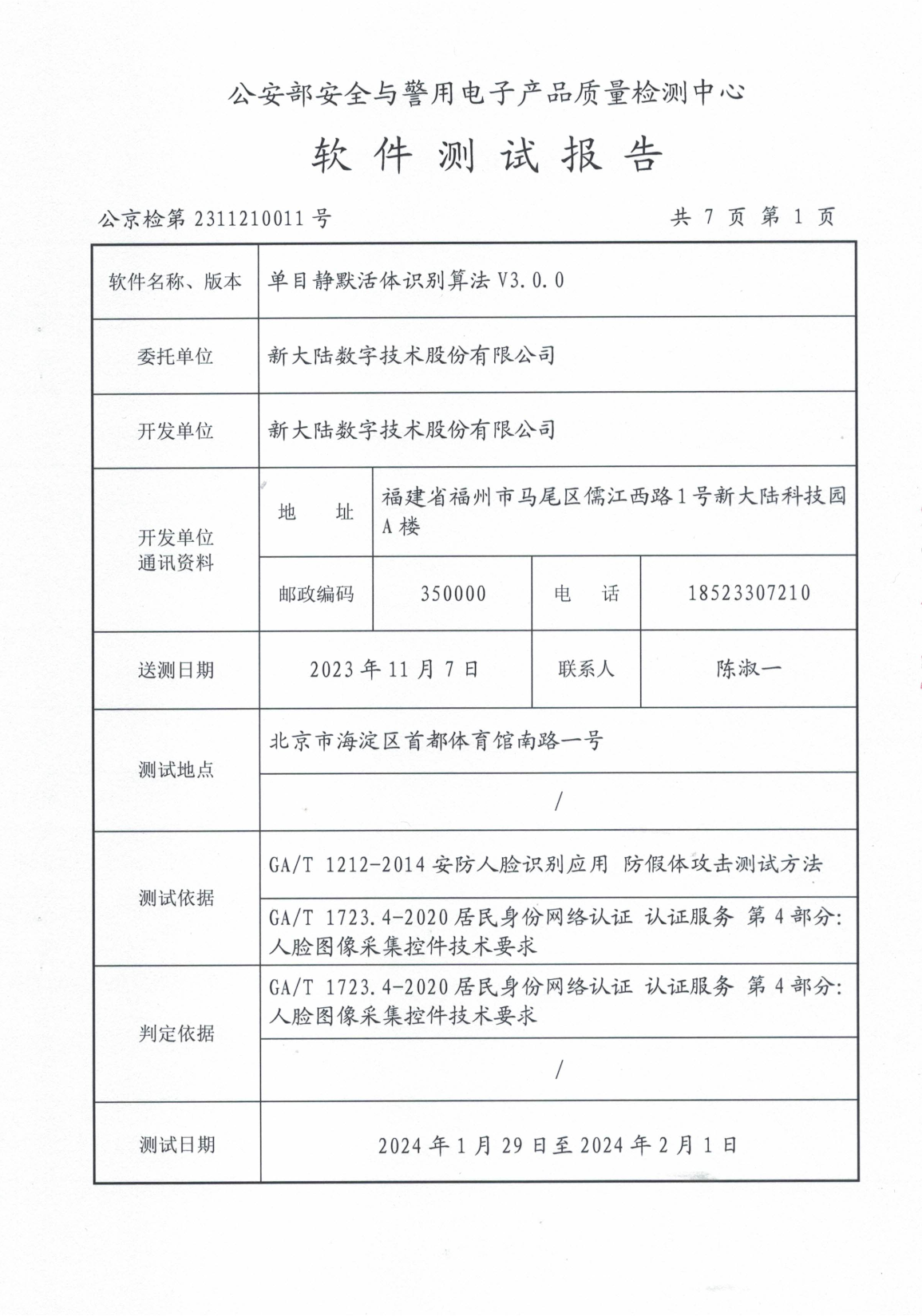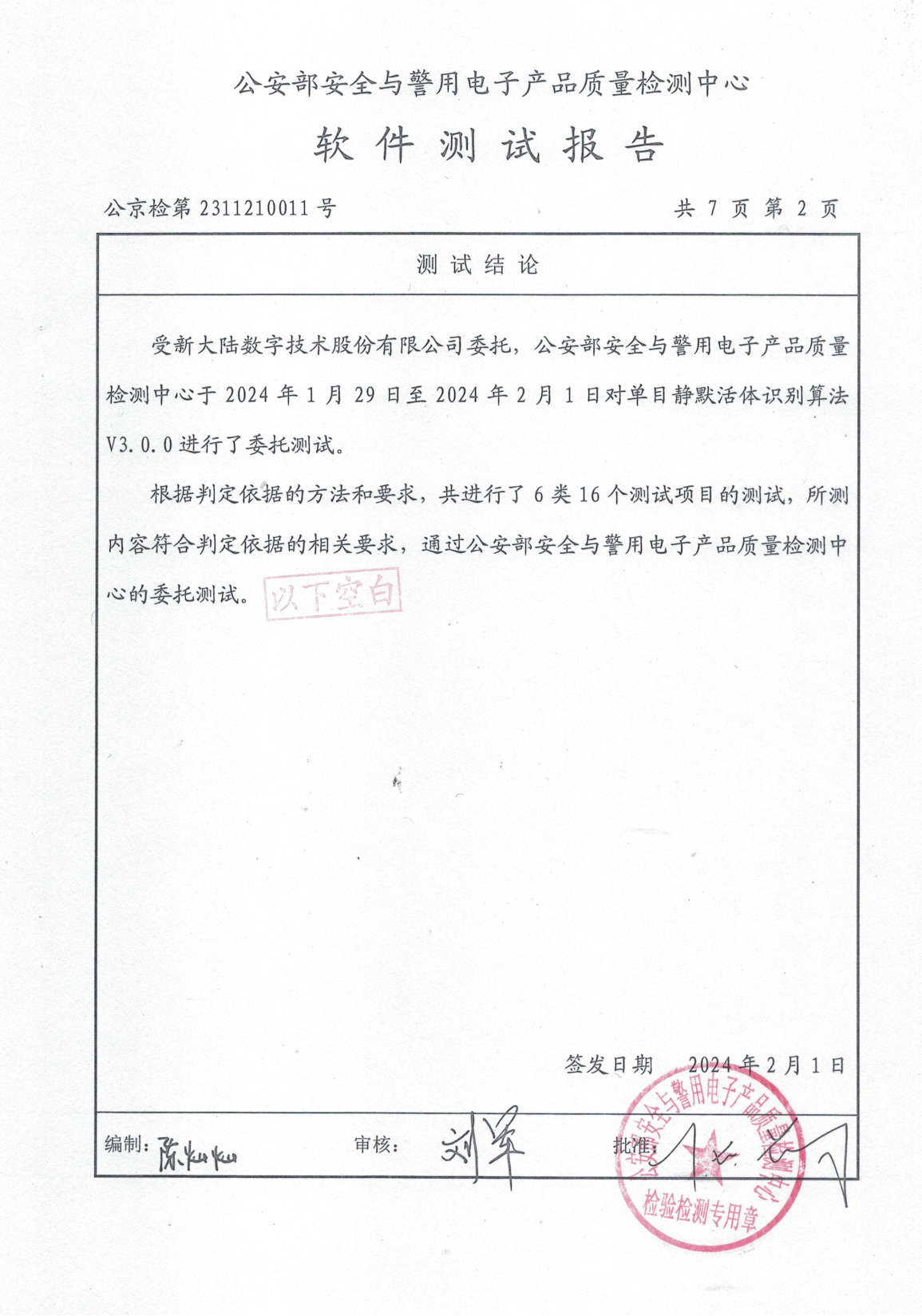 �
�Recently, Newland's Monocular Static and Silent Liveness Detection Algorithm has passed the security performance test conducted by the First Research Institute of the Ministry of Public Security of PRC. This achievement signifies that the technology complies with the highest national standard for resident network identity authentication, "GA/T 1723.4-2020 - Facial Image Collection Control Technical Requirements in Resident Identity Network Authentication Service," placing Newland's algorithm at the forefront of the industry in terms of security.

At present, the rapid advancement of AI vision technology has made facial recognition authentication an essential verification method across various industries, including digital citizenship, smart finance, smart governance, intelligent public security, and smart security systems. However, facial recognition authentication, which is closely linked to business security and user information security, faces significant challenges. Malicious actors are continuously developing new ways to attack these systems, using methods ranging from forged images and videos to 3D mask fabrication, resulting in considerable financial losses and reputational risks for businesses while posing a major test for the security of facial recognition systems. Furthermore, traditional facial recognition methods often require users to perform cumbersome actions, such as nodding or mouth opening through mobile apps or mini-programs, making the process time-consuming and diminishing the user experience.
Developed by Newland's Innovation Development Center, the Monocular Static and Silent Liveness Detection Algorithm offers a novel solution to these challenges. This algorithm utilizes static and silent facial recognition technology and has undergone comprehensive testing against image quality, image acquisition, image encryption, and various 2D/3D anti-spoofing attacks, in accordance with the "GA/T 1212-2014 Face Recognition Applications in Security Systems - Testing Methodologies for Anti-Spoofing." After rigorous testing across 6 categories and 16 different items, the algorithm demonstrated outstanding security performance, successfully meeting the standards for 2D/3D spoofing attacks, real-person liveness attacks, and image quality as specified in the "GA/T 1723.4-2020 Facial Image Collection Control Technical Requirements in Resident Identity Network Authentication Service." Furthermore, it passed the authoritative testing by the Security and Police Electronic Product Quality Testing Center of the Ministry of Public Security.


Notably, this technology facilitates resident identity authentication that adheres to the highest national standards without requiring active user cooperation, allowing for seamless and imperceptible facial recognition login processes, which significantly enhances user experience and satisfaction in sectors such as finance and public security.
Looking to the future, Newland will continue to leverage its advanced R&D capabilities to keep refining and bolstering the security and accuracy of AI algorithm applications. By empowering diverse scenarios and users through AI smart algorithms and applications, Newland strives to contribute to the sustainable development of the artificial intelligence ecosystem, injecting fresh vitality into the progress of the digital society.





















 Search
Search







 专业的顾问服务
专业的顾问服务